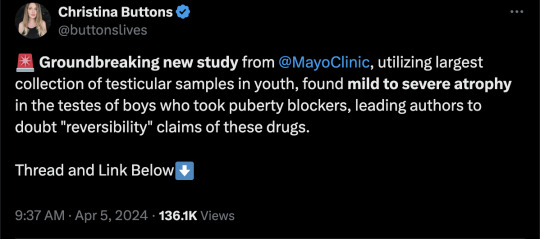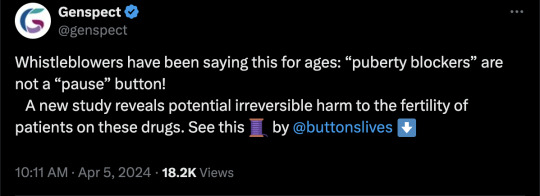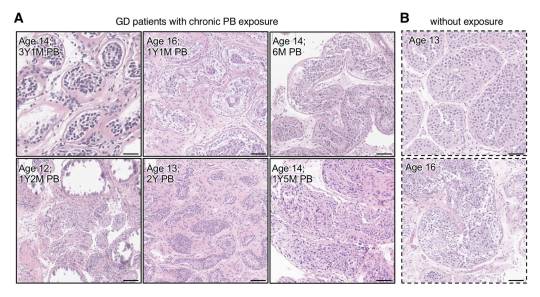Photo
i think this is just western ppl imagining that we all wear niqabs in our nations now and haven’t managed to retain any aspects of our culture bc of there being women who wear niqabs in our countries. i promise u i have never worn a niqab despite my country being muslim for 1000+ years but i HAVE worn my country’s traditional clothing. islam has taken some things away from us but we also all tend to have worn our cultural clothing & have not lost our cultural clothing. our cultures still exist


#women do dress like that in egypt still#they do wear their traditional dress in india#UAE still has women wearing those clothes#so does yemen#so does pakistan
26K notes
·
View notes
Photo



Harvest in apple orchards near Alma-Ata (Kazakhstan, 1972)
9K notes
·
View notes
Text
really strange how you can be almost at peace with something that happened to you but it will continue to be a defining moment of your life for the rest of your life. you wont think about it much anymore but in a conversation about a film someone will mention the year it was released and you’ll think to yourself, “that was before it happened” and you’ll see an old photo and think how strange it is to have existed before it happened and somehow it’s like living a life in two acts
30K notes
·
View notes
Text

yet another episode of "agreeing with feminists while condemning feminists"
596 notes
·
View notes
Text


By: Christina Buttons
Published: Apr 4, 2024

[ Figure 2: Representative images of Hematoxylin and Eosin-stained sections of testicular tissue biopsied from the testis from GD patients (A) with and (B) without PB exposure. ]
In a groundbreaking study from the Mayo Clinic, a globally recognized leader in medical research and patient care, researchers examined the effects of puberty blockers on testicular development in gender dysphoric male children. Their investigation revealed evidence of mild to severe atrophy in the sex glands of these children, leading the authors to express doubt in the claims of “reversibility” often made about puberty blockers.
The authors assert, “We provide unprecedented histological evidence revealing detrimental pediatric testicular sex gland responses to [puberty blockers].”
This preprint study, not yet peer-reviewed, presents evidence that puberty blockers induce significant cellular changes, impacting testicular development and sperm production in ways that are not fully reversible, with potentially permanent effects on testicular function and fertility. It challenges the longstanding view of puberty blockers as a reversible "pause button" on puberty.
As noted by the researchers of this study, no long-term studies exist for the use of puberty blockers in the context of stopping puberty for gender dysphoric children, and many potential health consequences remain unknown. In particular, the long-term impact on reproductive health is uncertain, making this study critical for filling this knowledge gap.
To address these unknowns, the Mayo Clinic has established the largest collection of testicular samples for patients aged 0-17 years, including those with gender dysphoria who have and have not yet received puberty blocker treatment, creating a database of over 130,000 individual cells for analysis.
Using a novel approach, the research team meticulously analyzed testicular tissue samples from youths undergoing puberty blocker treatment, with those not on puberty blocker treatment serving as controls. This comparison provides important insights into the potential cellular and molecular changes induced by these drugs.
Key Findings
The study utilized the Mayo Clinic's Pediatric Testicular Biobank for Fertility Preservation, which has been recruiting patients primarily from pediatric urology departments since 2015. Researchers analyzed testicular specimens from 87 young individuals (ages 0-17) undergoing fertility preservation surgery for various health reasons. Among these, 16 were gender dysphoric boys between the ages of 10 and 16, all of whom began identifying as transgender girls between the ages of 2 and 15. At the time of surgery, 9 patients (56%) were already on puberty blockers, with exposure ranging from 3 to 52 months. The authors noted that 100% of the 16 children would eventually go on to take them, highlighting “the widespread nature of PB intervention in this demographic.”
Among nine patients treated with puberty blockers, two exhibited unusual features in their testicles upon physical examination. One patient had abnormalities in both testicles, including incomplete development of the tunica albuginea, which is a protective covering around the testicles. The other patient had a right testicle that was difficult to detect.
In one part of the tissue-level analysis, over 400 testicular biopsy samples were analyzed and stained to examine the differences between those treated with puberty blockers and those who were not. Comparisons showed that testicular development in those treated with puberty blockers was abnormal compared to non-treated individuals. There was variability in how individuals responded to puberty blockers, leading to different outcomes in testicular development, including the degeneration of testicular tissues.
The study authors presented a case of a 12-year-old patient who underwent treatment with puberty blockers for 14 months. In this individual, 59% of the sex glands showed complete atrophy, along with the presence of microlithiasis—a condition where small clusters of calcium form in the testicles. This insight suggests that puberty blockers could lead to lasting structural changes. Additionally, research has shown a link between testicular microlithiasis and testicular cancer.

[ D) Representative images of normal (top) and fully atrophied sex gland (bottom). ]
This study also utilized single-cell analysis to investigate the effects of puberty blockers and aging on testicular cell composition. It took a very detailed look at individual cells from the testicles of a 14-year-old who had been on puberty blockers for over 4 years. The study analyzed a total of 130,100 cells, including 11,199 cells from the juvenile puberty blocker-treated patient.
The study observed that over 90% of the cells responsible for sperm production in this patient were stunted at an early developmental stage, unable to progress further. Additionally, it found "pathologically" higher and lower levels of two types of support cells (Sertoli cells) necessary for healthy sperm development. These findings suggest that puberty blockers can disrupt the normal maturation process of cells critical for sperm production.
In another part of the analysis, the authors found distinct cell-specific changes, including altered expression patterns of puberty-associated genes in endothelial cells, due to puberty blocker treatment. The authors believe that these drugs might induce juvenile testicular atrophy in part by disrupting the normal function of testicular endothelial cells.
Another aspect of the study focused on examining the effects of puberty blockers on the genetic activity of early-stage sperm cells, revealing significant changes that could potentially influence their development and fertility. By analyzing the activity of specific genes within these cells, the researchers found that puberty blockers may have caused alterations in gene expression, affecting processes crucial for the normal growth and function of these cells. This analysis suggests that the use of puberty blockers in gender dysphoric youth could have lasting implications for their reproductive health, particularly by impacting the ability of these early-stage sperm cells to mature properly.
Study Impact
Puberty blockers are increasingly used as a treatment for gender dysphoric youth to halt the development of secondary sex characteristics, such as breast development and widening of hips in females, or the growth of facial hair and deepening of the voice in males. Thousands of children in the United States are placed on this medical pathway as part of the gender-affirming model of care, under the presumption that these drugs are safe and fully reversible.
However, many aspects of the long-term consequences of puberty blockers, which have been administered to children off-label in an experimental manner, remain unknown. This study contributes valuable insights into the potential irreversible harm these treatments can cause to bodily and reproductive functions.
Arguably, the most critical finding is the evidence of mild to severe sex gland atrophy in children treated with puberty blockers. This atrophy signifies potential damage or impairment to the structures essential for sperm production, raising serious concerns about the long-term fertility impacts of these drugs for these individuals.
Given the Mayo Clinic's esteemed reputation in the medical and research communities, should the study pass peer review without any issues, its findings will carry significant weight.
Broader Implications
Puberty blockers belong to a group of synthetic gonadotropin-releasing hormone (GnRH) analogues. These drugs act on the pituitary gland to hinder the release of chemical signals that typically trigger the production of estrogen and testosterone. Historically GnRH analogues were used to treat conditions such as prostate cancer, fibroids, and endometriosis and, in some cases, as a measure to chemically castrate sex offenders.
In children, puberty blockers prevent the natural changes of puberty driven by sex hormones and have been used to treat central precocious puberty, a condition where a child begins to sexually mature much earlier than usual. In gender dysphoria, puberty blockers are administered experimentally, lacking long-term testing.
Notably, the U.S. Food and Drug Administration (FDA) has not approved puberty blockers and sex hormones for use in pediatric gender care. No clinical trials have substantiated the safety of these drugs for such non-approved applications and manufacturers of puberty blockers have repeatedly declined to conduct safety trials for their use on this cohort.
While puberty-blocking drugs are often promoted as “safe,” "reversible" and a "pause button" on puberty, these characterizations seem to stem from their approved use for treating central precocious puberty in younger children, not their burgeoning off-label use for managing gender dysphoria in adolescents.
Past studies have indicated possible negative effects on bone density and brain health. There is also a concern that these drugs might solidify gender dysphoria in adolescents, potentially leading them down a lifelong road of biomedical interventions. Following reports in 2016 of suicidal ideation in children administered puberty blockers, the FDA instructed drug manufacturers to include a warning about potential psychiatric issues on the drugs' labels.
Puberty blockers are increasingly administered to adolescents at Tanner Stage 2, the first signs of puberty. Research shows administering puberty blockers at this stage, followed by cross-sex hormones, may result in infertility, sterility, and sexual dysfunction. Furthermore, they inhibit the development of mature male genitalia, making it difficult to create a pseudovagina in the event of a later vaginoplasty due to a lack of sufficient tissue.
The National Health Service England recently announced it would no longer prescribe puberty blockers to youth outside of research settings and closed down its only national clinical service for pediatric gender medicine, following a review that deemed the service "not safe.”
Several European countries, including Sweden, Finland, the UK, Denmark, and Norway have updated their guidelines for youth transition to align with systematic evidence reviews, the gold standard in evidence-based medicine. These reviews concluded that the risks associated with youth transition outweigh any purported benefits. Consequently, these countries have implemented restrictions on medical interventions, prioritizing psychotherapy as a first-line response for minors experiencing gender-related distress.
==
They're sterilizing boys and giving them cancer. When "god" does it, we call him evil. When humans do it, we call it "gender affirming care."
154 notes
·
View notes
Text
#the first one for sure. i can just wear my headphones and i may get irritated#but i won’t be fearing being harassed and attacked so
143 notes
·
View notes
Text
btw there’s a singer who’s a MENA lesbian of colour (nxdia) and she even has parts in her songs (where she’s talking about being into the same sex!!!) where she sings in arabic 😭❤️
8 notes
·
View notes
Note
I saw someone accuse jkr of hoarding her wealth on foreign islands and evading tax…as if she’s not one of the highest tax payers in the uk ….they just seem to confuse her with anyone else they don’t like idk
i guess it is a common rich ppl tactic but it’s weird to assume that’s what she’s doing. idk why pretend she does all this other random stuff when there’s actual stuff she does that is objectionable
5 notes
·
View notes
Note
It’s worth mentioning Tony Blair was genuinely very popular for a while (until the Iran invasion iirc) to the point he was overshadowing the royal family
yeah i mean idk bc i was too young to have understood his time as prime minister but from what i’ve read there’s plenty of decent reasons to have supported him back then and he was very popular in his first term
0 notes
Note
GTA 5 the video game that allows you to go beat up strippers? It’s actually very misogynistic and unfeminist of you i think that you should think of the impl���Lol I’m just kidding but could u imagine?
honestly i did expect someone would be annoying enough to say this so i was reading this like “oh great here it is” dhdhsh
#unfortunately the game automatically put us in the strip club on two occasions i think#we have not attacked the strippers tho. we just commit murder of random innocent civilians and steal cars and murder police
2 notes
·
View notes
Note
Literally the first thing bisolationist said in the thing ppl are mad about now is that pregnancy is a huge factor and that many things are biased against women. but its not ok to call some victims collateral, or say our rape wasnt horrible like some ppl wanna do, or deny that women also participate in rape culture by being sexual predators or defending them. thats no benefit to anyone is just cruel.
that anon saying our 'trauma is valid' is stupid and useless bc what anon clearly want us to agree w her that the crimes against us are less bad and we should shut up. otherwise y are you so pressed?
and i say us bc i was also assaulted by a woman as a girl and i kno exactly what he means when people are desperate and angry to make us admit it was nbd.
anyway if hes having shit takes about rape why dont you actually quote something horrible hes said then anon. you cant. but
i’ve seen what he said on the topic of his trauma and i havent seen anything objectionable. it’s frankly disgusting and cruel to expect someone to downplay their rape & i don’t see the point in it whatsoever. what is there to gain from categorising rapes by level of severity like i’ve never come across rape victims that want to compare and quantify such things
2 notes
·
View notes
Note
It’s obvious het libfems still consider homosexuality to be extremely strange and unrelatable because they’ve accepted the idea that actually strange things like recreational hormone use and cosmetic mastectomies go hand in hand with homosexuality far too easily
unfortunately its not just them believing this
2 notes
·
View notes
Text
my gf is so cute, shes playing gta 5 while i watch over call and shes so happy that im happy just watching her
5 notes
·
View notes
Text
i can imagine if she didn’t film this and have evidence backing her up that many people would frame her as a “karen”… i’m glad she stood up for this other woman & played smart to catch him in the act!
Men being demons
1K notes
·
View notes


